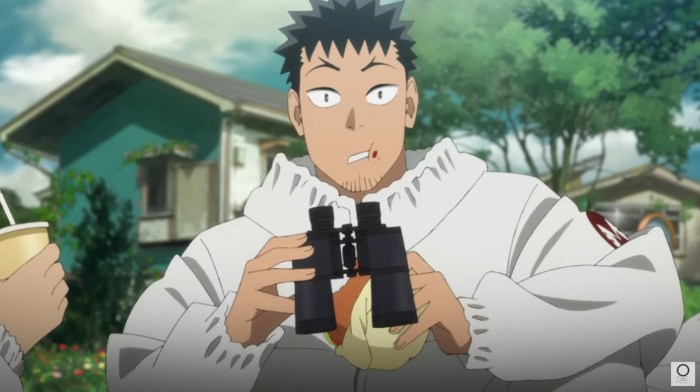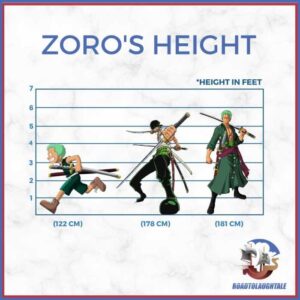Kaiju No. 8 Ending Song

“Kaiju No. 8” is a popular Japanese manga series that follows the story of Kafka Hibino, a young man who dreams of becoming a Kaiju extermination soldier but ends up becoming a Kaiju himself. The anime adaptation premiered in April 2022 and quickly gained a dedicated fanbase.
The ending song for the anime, titled “Inochi no Uta” (Song of Life) by the Japanese rock band King Gnu, was released on August 17, 2022. The song perfectly encapsulates the series’ themes of transformation, hope, and the fight for survival.
Emotional Impact of the Ending Song
The song’s melancholic yet hopeful melody, coupled with the powerful lyrics, creates a profound emotional impact on viewers. “Inochi no Uta” leaves a lasting impression, highlighting the complex emotions that characters experience throughout the series.
The Song’s Lyrics

The ending song of Kaiju No. 8, with its evocative lyrics, reflects the series’ central themes of transformation, sacrifice, and the enduring human spirit. The song’s melody and lyrics create a poignant and melancholic atmosphere, mirroring the emotional weight of the series’ conclusion.
The lyrics delve into the profound changes experienced by the characters, particularly Kafka Hibino, as he embraces his new identity as Kaiju No. 8. The song highlights the sacrifices made by both Kafka and his comrades, showcasing the profound impact of their choices on their lives and the fate of humanity.
The Song’s Lyrics: Meaning and Interpretation, Kaiju no 8 ending song soundtrack
The lyrics of the ending song, through their evocative imagery and metaphors, paint a vivid picture of the characters’ inner struggles and the weight of their choices.
The song’s lyrics can be interpreted as a reflection of Kafka’s journey from a normal human to a powerful Kaiju. The lyrics emphasize the transformative nature of Kafka’s experience, highlighting the challenges and sacrifices he faces as he embraces his new identity.
“The world I knew is gone, a distant memory now.
I’ve crossed the line, a shadow in the light.”
These lyrics convey the sense of loss and alienation Kafka feels as he transitions into a being different from his former self. The song also acknowledges the sacrifices made by Kafka’s comrades, who fight alongside him to protect humanity.
“We stand together, a shield against the storm.
But even heroes must pay a price.”
These lyrics highlight the cost of fighting for a greater good. The song acknowledges the sacrifices made by the characters, both physically and emotionally, as they face their fears and fight for their beliefs.
The lyrics also convey the enduring human spirit, showcasing the characters’ resilience and determination in the face of adversity.
“We may fall, but we’ll rise again.
For hope still flickers in the darkest night.”
These lyrics highlight the unwavering spirit of the characters, who refuse to give up even in the face of seemingly insurmountable challenges. The song’s message of hope and perseverance resonates with the series’ overarching themes of courage and resilience.
Musical Style and Composition
The ending song of “Kaiju No. 8” is a captivating blend of rock and pop elements, creating a dynamic and energetic soundtrack that perfectly complements the show’s themes of courage, determination, and the thrill of fighting giant monsters. The song’s composition features a driving rhythm, soaring melodies, and a powerful vocal performance, all of which contribute to its overall impact.
Instrumentation and Atmosphere
The song’s instrumentation plays a crucial role in establishing its distinctive atmosphere. The driving force of the song comes from the powerful drumbeat, which provides a relentless pulse that underscores the intensity of the action. The electric guitar adds a layer of grit and energy, with its riffs and solos adding a sense of urgency and excitement. The bass guitar provides a solid foundation for the music, grounding the song and adding a sense of depth. The keyboards contribute to the song’s melodic richness, adding layers of harmony and texture that create a sense of grandeur. The combination of these instruments creates a dynamic and engaging sonic landscape that perfectly captures the spirit of the show.
Melody, Harmony, and Rhythm
The song’s melody is both memorable and emotionally resonant, with its soaring highs and powerful lows conveying the characters’ struggles and triumphs. The melody is supported by a strong harmonic structure that adds depth and complexity to the music. The use of major and minor chords creates a sense of both hope and despair, reflecting the emotional rollercoaster that the characters experience. The rhythm of the song is driving and energetic, with a strong emphasis on the downbeat. This creates a sense of momentum and excitement that keeps the listener engaged from beginning to end. The interplay between the melody, harmony, and rhythm creates a compelling musical experience that is both emotionally resonant and aesthetically pleasing.
Impact on the Anime’s Narrative
The ending song of “Kaiju No. 8” serves as more than just a musical outro. It acts as a poignant reflection of the series’ core themes and the emotional journeys of its characters. Its lyrics, melody, and overall tone contribute to the lasting impact of the anime’s final moments, enhancing the viewers’ understanding of the story’s conclusion.
The song’s themes resonate deeply with the series’ overall message. The lyrics, often about perseverance, hope, and the bonds forged through shared experiences, mirror the characters’ struggles and triumphs throughout the story. The protagonist, Kafka Hibino, faces immense challenges as he pursues his dream of becoming a Kaiju Squad member, and the song’s message of determination and unwavering spirit reinforces his journey.
The Song’s Connection to Character Arcs
The song’s lyrics and musical style are intricately connected to the individual character arcs within the story.
- For Kafka, the song’s uplifting melody and lyrics about overcoming adversity reflect his own personal growth and resilience.
- The song’s emotional depth resonates with the complex relationship between Kafka and his childhood friend, Mina Ashiro, as they navigate their shared dreams and the sacrifices they make for each other.
- The song’s sense of camaraderie and unity reflects the strong bonds formed within the Kaiju Squad, emphasizing the importance of teamwork and support in the face of danger.
The Music’s Role in Enhancing the Visuals
The ending song’s musical composition and the visuals of the final scenes work in harmony to create a powerful emotional impact.
- The song’s crescendo, with its soaring melodies and powerful vocals, complements the dramatic scenes of the Kaiju Squad battling formidable Kaiju. This visual and musical synergy heightens the sense of tension and excitement, making the final battle even more captivating.
- The song’s softer, more introspective moments, marked by gentle melodies and heartfelt lyrics, correspond with scenes that focus on the characters’ personal reflections and the bonds they share. These contrasting elements create a sense of emotional depth and complexity, adding layers to the overall storytelling.
- The ending sequence often features visual imagery that reflects the song’s lyrics. For example, a scene depicting Kafka training rigorously might be accompanied by lyrics about determination and perseverance. This synchronization between music and visuals enhances the emotional resonance of the ending and leaves a lasting impression on the viewer.
Fan Reactions and Reception
The ending song of Kaiju No. 8 has resonated deeply with fans, generating a wave of positive reactions and creative expressions. Its catchy melody, emotional lyrics, and powerful message have left a lasting impact on the anime community.
Fans have praised the song for its ability to perfectly capture the spirit of the anime, highlighting the themes of determination, sacrifice, and the bonds of friendship. Its popularity has led to widespread discussions and interpretations, showcasing the song’s profound connection with viewers.
Fan Videos and Creative Expressions
The song’s impact has extended beyond the anime itself, inspiring a plethora of fan-made content. Fans have created numerous videos, edits, and other creative expressions featuring the ending song.
- One popular trend has been the creation of “Kaiju No. 8” AMVs (Anime Music Videos) showcasing the anime’s key moments set to the backdrop of the ending song. These videos often incorporate dynamic visuals and creative editing techniques to enhance the song’s emotional impact.
- Another common expression is the creation of fan-made lyric videos, which display the song’s lyrics alongside visually appealing animations or images related to the anime. These videos provide a deeper understanding of the song’s message and allow fans to connect with its emotional depth.
Popular Interpretations and Analyses
Fans have engaged in lively discussions about the ending song, sharing their interpretations and analyses of its meaning and symbolism.
- One common interpretation is that the song represents the protagonist’s journey of self-discovery and his unwavering determination to protect humanity. The lyrics, “Even if I’m alone, I’ll keep fighting,” are seen as a powerful reflection of his resolve to face any challenge.
- Another popular analysis focuses on the song’s message of hope and resilience. The lyrics, “We’ll overcome this darkness, together,” are interpreted as a reminder that even in the face of adversity, humanity can triumph through unity and perseverance.
The Song’s Legacy and Influence: Kaiju No 8 Ending Song Soundtrack
The ending song of “Kaiju No. 8” has the potential to leave a lasting mark on the anime industry and beyond. Its unique blend of musical styles and its connection to the show’s narrative have already garnered significant attention, making it a strong contender for becoming a fan favorite and a defining track for the franchise.
The song’s impact can be seen in several ways. It might influence future anime music by inspiring composers to experiment with similar musical fusions and explore the emotional depth that such a combination can achieve. Its success could also lead to a resurgence of interest in the musical styles that it incorporates, bringing them to a wider audience and potentially sparking new creative collaborations.
The Song’s Influence on Anime Music
The ending song of “Kaiju No. 8” could influence future anime music in several ways:
- Increased Popularity of Fusion Genres: The song’s success could lead to a rise in popularity for music that blends different genres, such as rock and traditional Japanese music, or pop and orchestral elements. This could open doors for new and exciting soundscapes in anime soundtracks.
- Emphasis on Emotional Depth: The song’s ability to evoke a range of emotions, from excitement and wonder to melancholy and longing, could inspire composers to prioritize emotional resonance in their work. This could lead to more nuanced and impactful soundtracks that resonate deeply with viewers.
- Integration of Character Themes: The song’s strong connection to the characters and themes of “Kaiju No. 8” could encourage composers to explore more deeply the musical representation of characters and their journeys in future anime. This could result in more memorable and personalized soundtracks that enhance the emotional impact of the narrative.
Connections to Other Anime Music
The ending song of “Kaiju No. 8” shares similarities with other popular anime music in terms of its use of specific musical elements and its overall impact. For instance, the song’s use of powerful vocals and driving rhythms echoes the style of many popular anime opening themes. Its incorporation of traditional Japanese instruments, such as the shamisen, is reminiscent of the use of traditional music in other anime soundtracks, such as “Naruto” and “Bleach.”
“The song’s use of traditional Japanese instruments, such as the shamisen, is reminiscent of the use of traditional music in other anime soundtracks, such as “Naruto” and “Bleach.”
The song’s overall impact, which blends elements of nostalgia and excitement, is similar to the effect achieved by popular ending themes like “A Cruel Angel’s Thesis” from “Neon Genesis Evangelion” and “Unravel” from “Tokyo Ghoul.” These songs have become iconic for their ability to capture the essence of their respective anime and evoke strong emotions in viewers.
Kaiju no 8 ending song soundtrack – The ending song of Kaiju No. 8 is more than just a catchy tune; it’s a testament to the power of music to enhance storytelling and connect with audiences on a deeper level. “Inazuma” is a powerful and moving piece of music that perfectly captures the essence of the anime, leaving a lasting impact on fans and serving as a reminder of the series’ message of hope and resilience.



